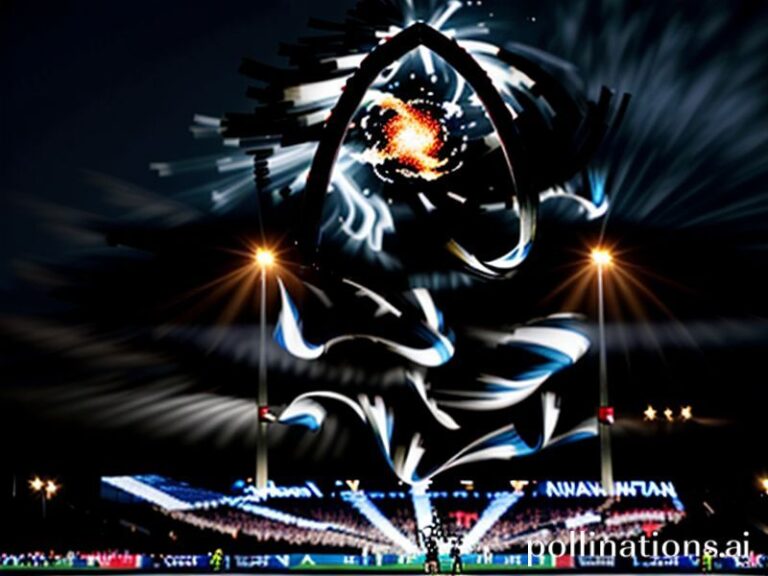Slaven Bilić: The Last Balkan Romantic in Football’s Age of Algorithmic Oligarchs
The Ballad of Slaven Bilić: A Balkan Bard in a World That Stopped Listening to Rock ’n’ Roll
By the time Slaven Bilić reached Beijing in 2023—fresh off a red-eye that smelled equally of instant noodles and Chinese state-media cologne—he carried the same leather jacket he’d worn while head-banging at AC/DC concerts in Zagreb circa 1988. That jacket is now a museum piece in the Musée de l’Arrogance Sportive, somewhere between Diego Maradona’s left boot and José Mourinho’s ego. Bilić, however, stubbornly insists on wearing it, as though nostalgia were a textile.
Globally, the man has become a walking contradiction: a chain-smoking Slavic romantic who speaks five languages yet is best understood by defenders who can’t speak any. When West Ham fans once serenaded him with “He’s just a sexy Bilic,” the song went viral from Upton Park to Uber rides in Jakarta, proving that in the age of TikTok even geopolitical nuance can be compressed into ten-second thirst traps.
But let’s zoom out. The planet is currently being governed by algorithms, hedge funds, and whatever Elon Musk tweeted during his 3 a.m. Ambien fugue state. In that context, Bilić’s career arc—Croatian centre-back, lawyer, guitarist, national-team coach, itinerant manager from Russia to Saudi Arabia to England’s second tier—reads like a Cold-War spy novel ghostwritten by Werner Herzog. Each posting is less a job and more a geopolitical mood ring:
• Russia (2018-19): Takes over Krasnodar, is politely escorted out after suggesting that maybe, just maybe, football isn’t a branch of the GRU.
• Saudi Arabia (2021-22): Wins nothing, but teaches the squad enough Balkan swear words to start a minor diplomatic incident with Qatar.
• Watford (2023): Lasts 61 days, fired via WhatsApp voice note—because nothing says “modernity” like terminating employment on an app originally designed for teenagers to send each other eggplant emojis.
The wider significance? Bilić is the last manager who still believes football is a morality play rather than a leveraged buyout. In a sport increasingly run by sovereign wealth funds that treat clubs like yachts with grass stains, he insists on pressing high like it’s 1998 and Stipe Pletikosa still has cartilage. His tactical stubbornness is charming, like watching a man trying to pay for groceries with Deutsche Marks.
Yet there’s something darker beneath the charm. Europe’s periphery—Balkans, Baltics, anywhere NATO expansion left a power vacuum—has long exported managers as emotional labor. Bilić sells the myth of authenticity to leagues that have monetized every last drop of it. When he screams on the touchline, you can almost hear the ghost of Yugoslavia cheering through the static.
The world, meanwhile, has moved on to data lakes, expected-goal models, and the quiet horror of “content creation.” Bilić still scribbles set-pieces on cigarette papers and hands them to wingers who immediately Instagram the note for clout. Somewhere in Zagreb, a 19-year-old data analyst is running 500 Monte Carlo simulations proving that Bilić’s career should statistically not exist. The universe shrugs.
Conclusion:
Slaven Bilić is not just a football manager; he’s a living indictment of late-capitalist sport, a man whose greatest victory may be refusing to update his Spotify playlist. As nations weaponize soft power through stoppage-time goals, Bilić keeps wandering the globe like a bard who misplaced his lute but still remembers the chords. In 20 years, when FIFA is headquartered on Mars and matches are sponsored by mood-regulation pharmaceuticals, historians will look back at the leather-jacketed Croatian and say: “There went the last guy who thought the game was about people, not portfolios.”
And somewhere, in a smoke-filled bar outside Split, the jukebox will cough up “Highway to Hell,” and nobody will bother to check the analytics.







